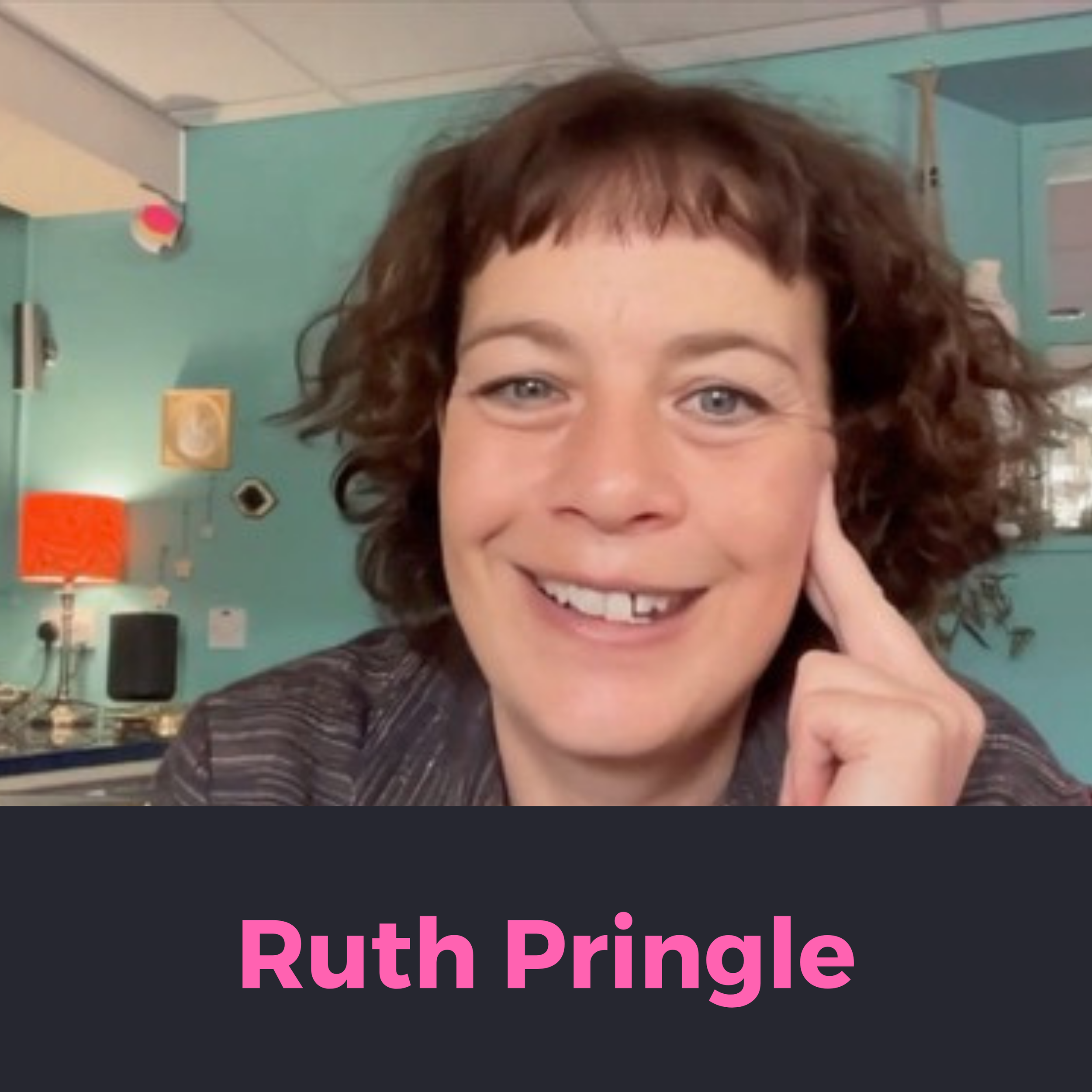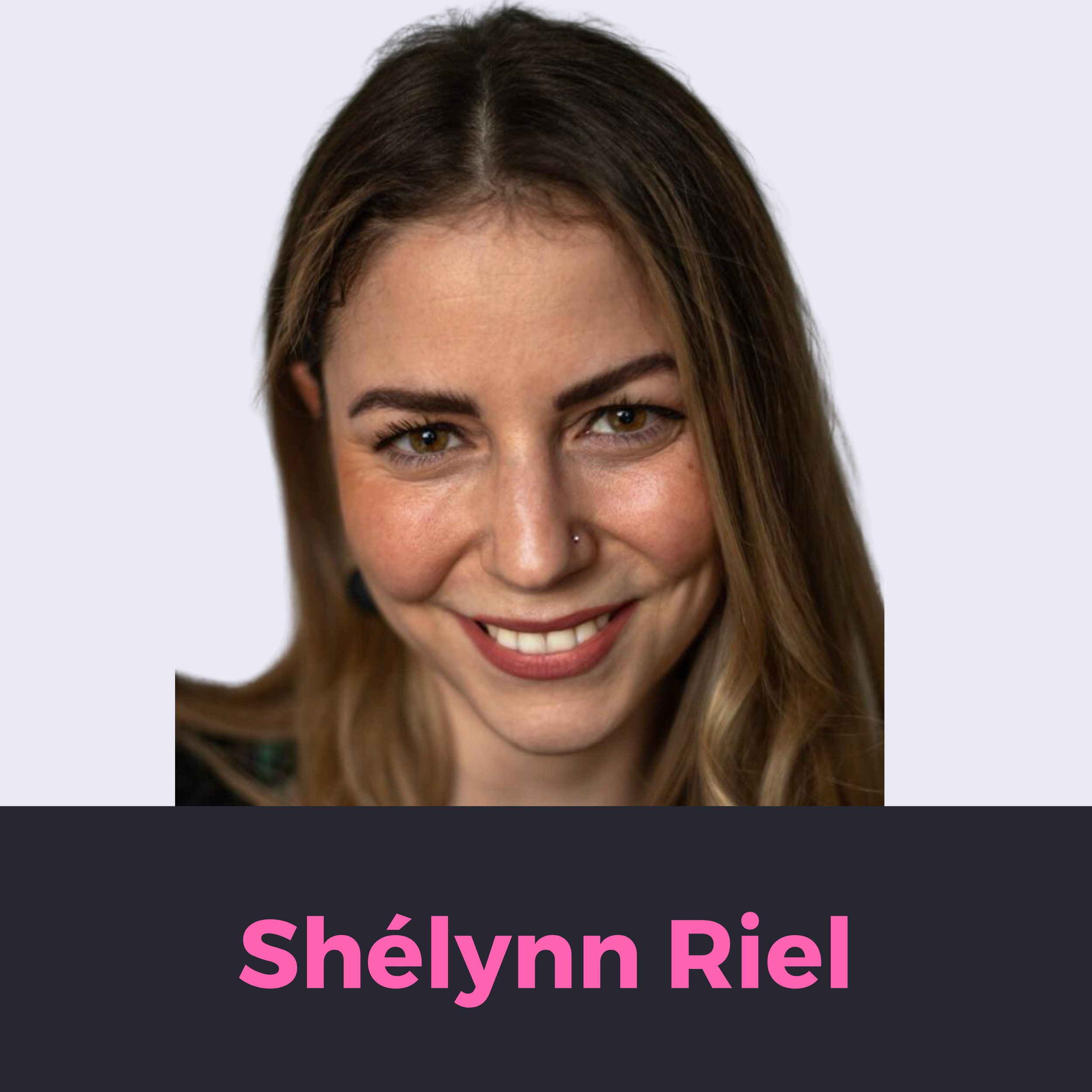S8E5: Freelancer or Business Owner. What's the difference?
Founder of Earn Learn Thrive, Rachael Roberts, discusses the nuances between freelancing and business ownership in education. With over 30 years of experience in the field, Rachael offers valuable insights for educators wanting to move from employment into business ownership.
Key talking points
Defining Freelancing vs. Business Ownership
Rachael explores the distinction between freelancing and business ownership, emphasizing the importance of viewing oneself as a business owner regardless of terminology.
Shifting Mindset for Success
Rachael highlights the significance of adopting a business mindset, empowering freelancers to take control of their careers and attract higher-quality clients.
Getting Started While Employed
Rachael addresses the common dilemma of starting a business while employed, offering practical advice on balancing employment with entrepreneurial pursuits.
Building Your Business Step-by-Step
Rachael shares strategies for launching a business gradually, emphasizing the importance of identifying target clients, understanding their needs, and offering tailored solutions.
Organic Marketing for Educators
Rather than traditional sales tactics, Rachael advocates for organic marketing, which focuses on building relationships and providing value to attract ideal clients.
Sustainable Growth and Client Relationships
Laura and Rachael discuss the misconception that a successful business requires numerous clients, emphasising the value of cultivating long-term relationships with the right clients.
About Rachael
Rachael is a qualified coach with 30 years of ELT industry experience as a teacher, teacher trainer and materials writer, including 15 years as a thriving small business owner. Rachael is on a mission to help ELT freelancers break free from being underpaid and undervalued.
Through her foundation course (The Confident Freelancing Roadmap) and membership (The Confident ELT Freelancer Collective), as well as her group programme (Designed to Flourish), she aims to challenge the low expectations and the culture of ‘having to’ accept poor conditions, and teach ELT freelancers the steps they can take to build sustainable, fulfilling businesses. Visit Earn Learn Thrive to learn more.
Watch the video with closed captions or refer to the transcript below.
Transcript
00:00:00:07 - 00:00:28:02
Laura
TESOL Pop. Season eight Episode five Hello and welcome to TESOL Pop: the mini podcast for busy teachers. My name is Laura and joining me today to talk about the difference between freelancing versus business ownership is Rachael Roberts. Rachael is a qualified coach with over 30 years of experience working in the art industry. She's been a teacher, a teacher trainer, a materials writer, and is, of course, the owner of her own business, where she helps ELT [English Language Teaching]
00:00:28:02 - 00:00:50:11
Laura
Freelancers break free from being undervalued and underpaid. In this episode, we're going to talk about what the difference is, obviously between freelancing and business ownership and how to get started. Now, this episode is ideal if you're thinking about moving into doing your own thing. Because Rachael will share what you can do to get started and where you can find clients.
00:00:50:13 - 00:00:55:18
Laura
Now let's jump to where I asked Rachael what the difference is between freelancing and business ownership.
00:00:55:20 - 00:01:24:10
Rachael
When I first started my business Earn Learn Thrive limited, I really went back and forth on this because I kind of wanted to call everybody a business owner, because I think that there's something innate where people are very reluctant to kind of claim that because they think to be a business owner, you have to like employ people and you have to be like some kind of big some kind of big thing.
00:01:24:12 - 00:01:55:05
Rachael
And in fact, I think anybody who sells their services or products is ultimately a business owner. Though I recognise in some countries there are sort of legal distinctions. But I usually do talk about freelancing because I know that that's how most people prefer to describe themselves, because maybe it sounds a little bit safer. Freelancing, strictly speaking, I think is when you work for other businesses.
00:01:55:07 - 00:02:22:00
Rachael
But most people that I know who are taking on clients, teaching English, for example, or other modern foreign languages still call themselves a freelancer. So I guess, you know, to sum up really what I would like to say is whether you call yourself a freelancer or a business owner, I would really encourage you to think of yourself as running a business and not being just a freelancer.
00:02:22:05 - 00:02:32:20
Laura
Generally speaking, do you notice there's a shift when people start to think of themselves as a business rather than a freelancer in terms of the decisions they make and the success that they may experience as well?
00:02:32:22 - 00:02:53:12
Rachael
Yeah, I mean, I think, you know, absolutely it is key and that's why I'm so keen for people to make that shift, because I think when you're a freelancer, there's a tendency to see yourself as kind of, you know, like a little baby bird, kind of waiting for food to drop into your mouth. And unfortunately, that's not really how it works.
00:02:53:12 - 00:03:25:21
Rachael
Or you might not like the food that gets dropped into your mouth. It tends to not be particularly well paid. You don't know where the next thing is coming from. And this is where you get feast and famine problem. See your take on anything because you don't know where you might get your next meal. So to speak. And I think once you start to see yourself as actually running a business, then you realise that you can make decisions that will actually bring you in, clients that you have the control over it to a much larger degree than many people think.
00:03:25:23 - 00:03:28:12
Rachael
So that's why I think it's a really important shift to make.
00:03:28:15 - 00:03:43:01
Laura
Many of the listeners for TESOL Pop who will be tuning in today may already be in full time employment and be thinking, Well, when's the best time to start taking action? Should we wait until we've finished a contract or should we start now if we're in full time employment?
00:03:43:03 - 00:04:11:20
Rachael
So I think that's a great question and something that I come up against all the time, because for most people it isn't really an option to finish your job and then go freelance because you're going to have quite a long period where you're probably not bringing in very much money. And unless you've got plenty of savings to back you up or you happen to be independently wealthy, not so common in the ELT [English Language Teaching] field, then that's probably not the way to go about it.
00:04:11:22 - 00:04:40:19
Rachael
However, people then struggle because they feel, Well, I'm really busy with what I'm doing now. How on earth can I find the time to start a new business? And I think this is because people often misunderstand what is really needed at the core to start a new business. It's not about having to immediately have an all singing, all dancing website or, you know, an incredibly complex course on a platform.
00:04:40:21 - 00:05:06:12
Rachael
You can start much smaller than that. The main thing you need to do to start with is to work out who it is you want to work with, why they need you, what you're going to offer them, and then you can start to put your ideas out there, start to gather in audience, maybe try a few things out, small scale, you know, get together just a few people to do a beta run of a program that you're planning.
00:05:06:12 - 00:05:19:15
Rachael
For example, get some feedback, get some testimonials, and all of these things can be done alongside your employment until the point when you feel ready to finally take the full steps.
00:05:19:17 - 00:05:40:04
Laura
It sounds a lot less scary when you put it that way. When you talk about like beta testing of things or minimum viable product, I sometimes hear people say as a kind of synonym. It can be just a workshop that you host on Zoom or I did one-to-one coaching for a while to test out public speaking and media training for free.
00:05:40:04 - 00:05:57:20
Laura
I did it for free and that the the trade off was feedback from my clients and testimonials if they were happy with my services. And it can be just on that type of scale. When you say a programme, it shouldn't have to be like a full online programme. You don’t have to dive into the deep and it can just be testing things out.
00:05:57:22 - 00:06:37:00
Rachael
Totally. I mean, when I started the group programme, which has now become Designed to Flourish, I did the first version fully live. Nothing was recorded except the recordings of the sessions I gave and we just hosted stuff in Google Drive and that was it. I didn't do it for free, actually, and I do generally recommend not doing it totally for free because I think you get more buy in from people when they've paid something and that means you get more committed people, you'll get better feedback and probably better results, but you can certainly offer it much cheaper than you ultimately plan to.
00:06:37:02 - 00:06:44:12
Rachael
And like I said, it's another. Yes, exactly. And that will bring people in and the right people in and get you started.
00:06:44:14 - 00:06:55:22
Laura
So how can we find potential clients whether our ideal clients are students or teachers? Where where can we find them to start building our community and therefore our business?
00:06:55:24 - 00:07:20:14
Rachael
So that's a big question, obviously, and it's at the core of what I do on my group programme because it does take time, I think, to work through everything that you need to understand about those clients in order to know how to find them. So essentially, I think there are three main steps and the first one is working out who those people are.
00:07:20:16 - 00:07:44:23
Rachael
And at this stage, people very often say, Well, everyone or I don't know, I like variety or, you know, something like that. And I get that totally. But it's very difficult to market to people if you don't have a clear idea who you're talking to. You know, it's like if you try and please everyone, you end up pleasing no one or more likely just being ignored.
00:07:45:00 - 00:08:13:01
Rachael
So the clearer you can be about a specific group of people and what it is that they need from you, that you're in a good position to give them, the easier it's going to be to find those people. So once you've done that, then the second stage is to go deeper into, well, what do they actually need? Because it's not going to be, let's say your teacher, it's not just going to be English lessons.
00:08:13:03 - 00:08:40:16
Rachael
You know, they're going to need some specific help with the type of English that they need to use. And it will also depend on how busy they are, what their previous learning experiences are, all sorts of things. So based on all of that and on what your skills are like, maybe you're particularly good at teaching pronunciation, for example, you can then create something which really fits their needs.
00:08:40:16 - 00:09:00:24
Rachael
So that might be a one-to-one offer, but that doesn't mean that all has to be live any more than if it's a group programme. You can still combine live and asynchronous elements of a course and that could work better for your clients because it's more flexible and it's definitely better for you because it's fewer contact hours.
00:09:01:01 - 00:09:28:18
Rachael
So you work out what they need and then you create this offer around that. And then step three is obviously marketing and selling it. And that is about getting out how this is going to help them, why it's particularly suited to their needs, and also about you and why they should trust you to do it, why you are the right person for them.
00:09:28:21 - 00:09:46:21
Rachael
If you are, maybe you're not, you know, and that's fine to. So those are kind of like the three main things you need to do. And obviously there's quite a lot of depth in each of those. So it takes time. But if you can get those things right, then you will find that clients start to come to you.
00:09:46:23 - 00:10:09:08
Rachael
And that's the approach that I teach. So I don't teach cold messaging or calling or ads. I teach what's called organic marketing, which is essentially organically growing those people who are interested in what it is that you offer until the point when they fail and ask the right time.
00:10:09:10 - 00:10:34:23
Laura
That particularly sounds appealing because I think whenever we or for me, I associate sales or cold calling or that type of approach as really yeah it kind of gives you that that sort of feeling sleazy and I imagine a lot of educators feel the same. So leaning into like finding your people and realising what value you provide them is a way of wonderfully attracting and growing a community.
00:10:35:00 - 00:10:53:19
Rachael
Absolutely. And also, you know, I think if you're selling some you know, if you're a used car salesperson to take the cliché, you just want to make the sale. You don't need to build a relationship with these people because you're not going to see them again. But if you're a teacher, you absolutely want a good relationship with that person.
00:10:53:19 - 00:11:06:04
Rachael
You don't want to mis-sell anything or force anybody into anything because then you're going to be working with them. So, you know, it's just not a good fit for me. I think that that kind of heavy sales approach.
00:11:06:06 - 00:11:28:06
Laura
Yeah. For me, one of the things that kind of lightbulb moments I had this year and it sounds so obvious, but it really was a light bulb moment. It was actually, I don't need that many clients to have a successful business, and my current clients are the ones to really maintain that relationship with because they come back. I have returning clients and it's like, Wow, this is fantastic.
00:11:28:08 - 00:11:42:07
Laura
And then all of a sudden it doesn't seem that difficult to grow a sustainable business and not have to be working all the hours of the day in order to sustain it and to be. Yeah, to live a very comfortable life. That was a real. Wow.
00:11:42:09 - 00:11:51:03
Rachael
Yeah. No, absolutely. You know, you don't need hundreds or thousands of clients. You just need the right ones.
00:11:51:05 - 00:12:06:05
Laura
Rachael, it's been lovely talking to you today. Thank you so much for your time. I know listeners are going to be curious as to where they can find out more information about the programmes you mentioned at the start of the session. Could you tell people where can they find you and find out more?
00:12:06:07 - 00:12:33:15
Rachael
Thank you, Laura, and thank you to everybody who's been listening or watching this. So if you'd like to know more about what I do, the place to go is my website, which is Earn Learn Thrive.com And if you know that you definitely need help with every aspect of setting up or developing and improving your business, then I would recommend that you take a look at my group programme, which is called Designed to Flourish.
00:12:33:17 - 00:12:47:24
Rachael
If things are already going pretty well for you or your new to freelancing and you want to get some support with the foundational things, then I'd recommend you take a look at my membership. The Confident ELT Freelancer Collective.
00:12:48:01 - 00:13:05:13
Laura
Lovely. And as always, those links are in the show notes, so you can easily find them. If you love what we do at TESOL Pop, then you can supporter us by sharing today's episode with your community, by leaving a rating and review wherever you listen to the podcast or by even buying as a coffee at ko-fi.com/tesolpop
You might also like
Good to know
This blog space and its associated multimedia content contain affiliate links. To learn more about how affiliate links work, please read our disclaimer here.





Kate Bodrova, co-founder and CEO of Amazy, explores how technology is positively impacting teaching. Kate shares insights on how Amazy helps educators create and share interactive, media-rich resources while streamlining workflows. In this episode, Laura and Kate also discuss current trends, including AI’s role in education, the rise of the teacherpreneur, and how educators can leverage technology to enhance—rather than replace—human connection in the classroom.